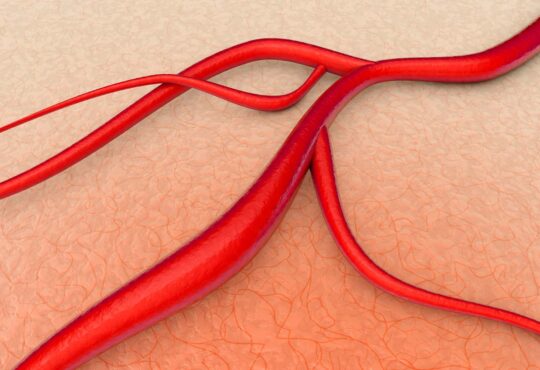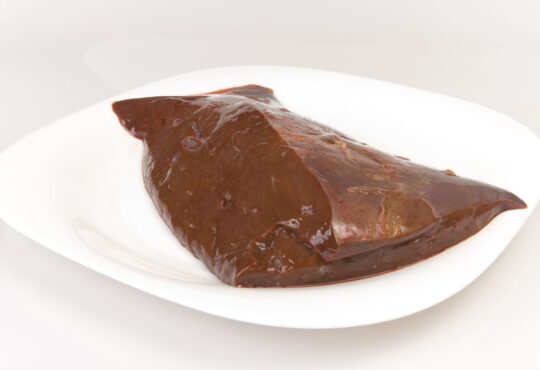The Truth About The Rare Antioxidant Called C60? Can It Really Extend Lifespan In Adults Like it Has for Animals?

The miracle magic molecule that will help you live longer may be shaped like the Epcot Dome.
In 1985, a scientist discovered a rare substance consisting of 60 carbon molecules shaped like a sphere or soccer ball – a geodesic dome. Turns out this substance, C60, is important in the materials industry. Whatever you add it to, it makes stronger.
That’s partly true because its shape allows it to hold up to 30 stray electrons without being consumed. That helps prevent damage from oxidation, such as rust.
In other words, it’s an antioxidant, just like Vitamin C or many plant polyphenols. But much more powerful.
However, nobody thought of it as a magic health supplement until 2012. That’s when scientists at the University of Paris published the results of a study they ran with rats.
The group of rats fed C60 dissolved in olive oil lived about 90% longer than the control group of rats who did not consume C60. (They lived an average rat lifespan.) Also, the rats fed C60 did not display much general aging, and none of them grew tumors.
That study is why you can now go on Amazon and find zillions of companies who want you to buy their C60.
It’s also called carbon-60, fullerene or buckyballs. (The last two honor Buckminister Fuller, the inventor of the geodesic dome.)
Should you?
People are Making Extensive Claims for C60 Health Benefits
* Better sleep
* Protection from nerve disorders such as Parkinson’s
* Protection from ultraviolet light radiation
* Inhibition of allergic responses
* Regulation of your immune system’s response
According to testimonials on manufacturer websites and Amazon product pages, C60 can do just about anything to make you feel better and healthier.
Be Cautious
Maybe C60 activated my too-good-to-be-true radar. I hope it is the miracle we all need and deserve, but there are good reasons to go slow:
* C60 IS a natural substance, but a rare one. It’s not a required nutrient found in food. You are not suffering from a C60 deficiency.
* C60 is difficult to manufacture. The process requires the use of dangerous solvents, which must be baked and washed away. If you take it, make sure you obtain it from a reputable, not fly-by-night, source.
* Rat studies are not directly applicable to people. True, what poisons rats will probably kill us too. But C60 doubling the lifespan of rats does not guarantee you’ll live to be 145.
* One company advises people to take the equivalent of what was given to the rats, but nobody knows whether that’s the optimal dose for rats, let alone people. In fact, the scientists gave the rats much more than they would expect people to take. That’s because the actual purpose of the study was to determine C60’s toxicity. They expected the rats fed C60 to die first, NOT later.
* There have been no extensive clinical trials of C60. We really have no proof it does anything positive for people. It seems to be safe because it obviously didn’t hurt the rats. And C60 leaves your body only hours after you consume it. But we have no guarantee it won’t hurt your health in the long run.
* We do understand it’s a powerful antioxidant, and that no doubt contributes to its beneficial effects. However, we don’t understand how C60 does most of what it allegedly does. The antioxidant effect is powerful, but doesn’t explain everything. That’s especially true because the C60 does not remain in your body. But its effects seem to linger on after it’s gone from your body. Why or how? Nobody knows.
* When exposed to light, C60 actually oxidizes. Inside your body, it’s an antioxidant. But when applied to your skin or simply exposed to the light, it’s harmful.
* It can also be harmful when suspended in water, because it aggregates into clumps, and these are toxic. It must be dissolved in oil. (It won’t dissolve in water.)
* Oil is processed food. Even olive oil damages the lining of your blood vessels. Still, I’d have to agree that if C60 is really half as beneficial as claimed, one teaspoon of olive oil a day would be worth it.
* C60 molecules are extremely small nanoparticles. They can go through your tissues, into your cells and pass through the blood-brain barrier.
* You can find instructions online for making it yourself, but unless you’re comfortable with high-performance chromatography and know how to completely clean off the junk carbon substances and the toxic solvents, I wouldn’t even dream of trying.
One Company has Been Making C60 for Commercial Use Since the 1990s
That’s SES Research, co-founded by Chris Burres. If I decided to take C60, I’d take that sold by SES Research because they were manufacturing it long before anybody realized it could be a health supplement. Also, Burres comes across as nonhypey. He takes it himself, but he doesn’t make extravagant claims for it.
Myself, I plan to wait for more and better research results.
However, if you’re right now at risk of dying from cancer or extreme old age, it’s probably worth trying.
http://www.anti-agingfirewalls.com/2012/11/12/1424/
https://www.ncbi.nlm.nih.gov/pubmed/12135775
https://www.semanticscholar.org/paper/The-prolongation-of-the-lifespan-of-rats-by-oral-of-Baati-Bourasset/99b646db64a3df5e524a549fb4a1fedf4851a2dd







